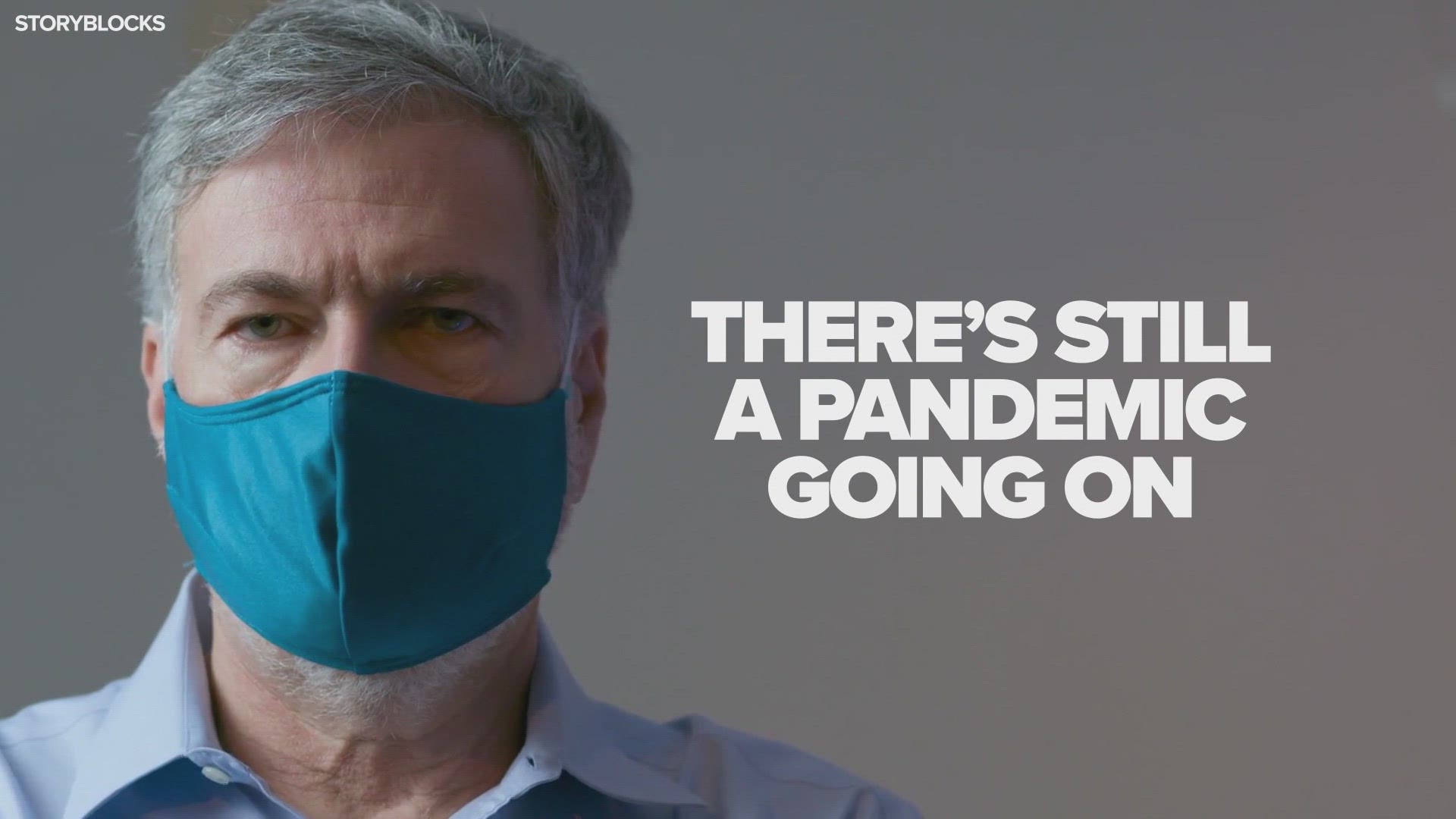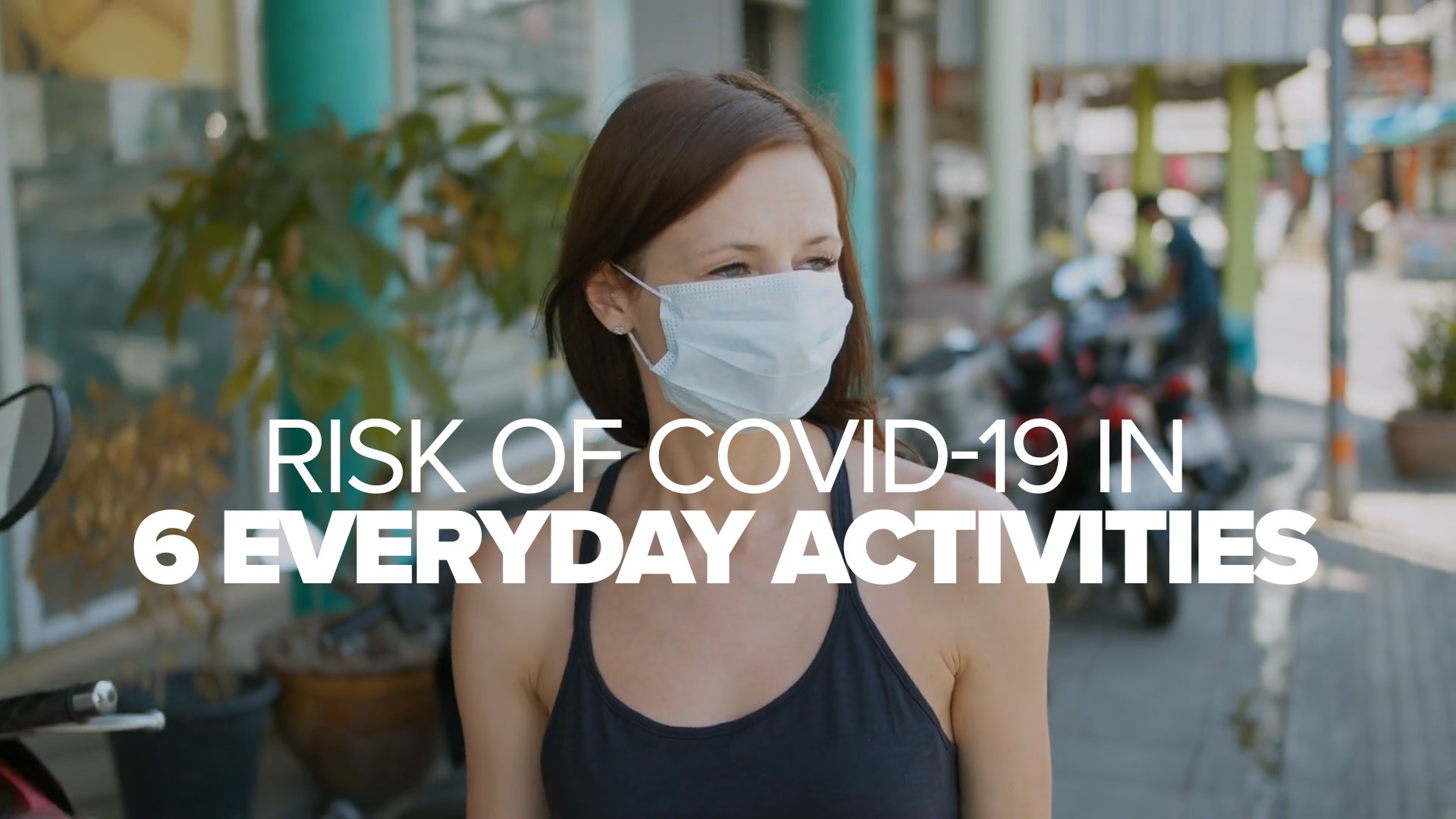WASHINGTON — Scientists have learned that the new coronavirus can stay on surfaces like phone screens, banknotes and stainless steel for up to 28 days, a study now says.
Researchers from Australia's national science agency released their findings on SARS-CoV-2, the virus responsible for COVID-19, in the Virology Journal. The study found that the virus tends to survive longer at lower temperatures and also survives longer on non-porous surfaces such as glass and vinyl, compared to porous and complex surfaces like cotton.
A previous test in April found that the coronavirus can live on surfaces for only a few days, but the new research found that the virus is actually "extremely robust" when in the right environment.
"Our results show that SARS-CoV-2 can remain infectious on surfaces for long periods of time, reinforcing the need for good practices such as regular handwashing and cleaning surfaces," said Dr. Eagles, the Deputy Director of the Australian Centre for Disease Preparedness.
At room temperature, or 68 degrees Fahrenheit, researchers observed that COVID-19 can survive for up to 28 days. When the experiment was carried out in warmer temperatures, at 86 and 104 degrees Fahrenheit, the survival time of the virus decreased. Similar experiments on Influenza A found that it only survives on surfaces for up to 17 days.
During the experiment, scientists also conducted the study in the dark to remove the effect of UV light since it is known that direct sunlight can rapidly inactivate the virus.
However, there's doubt about how many people can become sick from the virus through surfaces, since the primary way the coronavirus spreads is mainly through exposure to respiratory droplets. The Centers for Disease Control and Prevention has claimed that "touching surfaces is not thought to be a common way that COVID-19 spreads."
Professor Ron Eccles, the former director of Common Cold Centre at Cardiff University, told the BBC that the study causes "unnecessary fear in the public."
"Viruses are spread on surfaces from mucus in coughs and sneezes and dirty fingers and this study did not use fresh human mucus as a vehicle to spread the virus," he told the BBC. "In my opinion infectious viruses will only persist for hours in mucus on surfaces rather than days."
The CDC recommends staying at least six feet away from others, wearing face coverings and washing hands often to protect yourself and others from the virus.
For most people, the new coronavirus causes mild or moderate symptoms. For some, especially older adults and people with existing health problems, it can cause more severe illness, including pneumonia and death.
The United States has more than 7.7 million confirmed cases of COVID-19, according to statistics from Johns Hopkins University.
Just after 11:30 a.m. EDT Monday, the U.S. had more than 214,000 deaths from the virus. Worldwide, there are more than 37 million confirmed cases with more than 1 million deaths.


